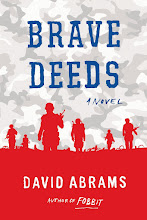Like many a Thomas McGuane character, I. B. “Berl” Pickett stands on the outside looking in. As the central figure in McGuane’s newest novel, Driving on the Rim
Pickett’s troubles actually began at birth when his mother—“a patriot and evangelical Christian”—christened him Irving Berlin Pickett and so, he tells us in the novel’s opening pages, “my very name illustrates the borrowed nature of my life.” It’s as auspicious an introduction as “Call me Ishmael” or “My father’s family name being Pirrip, and my christian name Philip, my infant tongue could make of both names nothing longer or more explicit than Pip.” Like those Melville and Dickens characters, Berl Pickett longs to understand how he fits into the life around him. He wanders the windswept surface of the earth in search of meaning, happiness and a warm, moist woman. This being a Thomas McGuane novel, it is not without its fair share of sex.
And humor. There are lots and lots of laughs to be had with these pages. The wit is droll and springs up like a jack-in-the-box. For example, when Berl is fourteen years old, his itinerant parents drop him off at his Aunt Silbie’s house and the divorcee with a “tigerish sexual appetite” wastes no time helping the boy come of age:
“Aunt Silbie,” I said, clamping my hand atop my old Samsonite suitcase before she could get at its contents anymore, “I can unpack myself.”McGuane tosses off jokes as effortlessly as an old ranch hand tying a half-hitch—he makes it look easy, but when we try the knot, the rope only ends up a tangled puzzle in our hands. Some of the funniest moments are non-sequiturs and completely inorganic to their surroundings, but that makes McGuane’s style all the more appealing.
“I want to help you,” she cried. I didn’t really feel I could say “please don’t,” and so I stood by helpless as she flung my clothes out on the bed, inspecting them, pinning things to my shoulders with her thumbs for appraisal. “Don’t move. This is too important! This calls for celebration! You-are-the-first-to-occupy-this-room, my dear, my angel, my pet.” She bustled out, and when she came back she had a bottle of wine in one hand. Her clothes she had left elsewhere. She always called it “disrobing,” though I never saw a robe.
To make things worse, my neighbors were still fighting and I could hear them all the way across the street. The man with the bass voice shouted, “There’s cat hair on my ChapStick!” And shortly after that, “For Christ’s sake, hold the snow peas!” And back came the woman’s tiny, shrill voice: “I won’t let you spoil one more Christmas!” This was just too troubling because we were nowhere near Christmas.Here’s a writer who would make a lively dinner guest, a raconteur who bounces from story to story, taking up a new thread of conversation before the laughter has died down from the last joke.
Driving on the Rim is a lot like that—bouncy and breezy and, in its mellowest moments, exceptionally poignant. This new novel finds the sharply satiric author of Keep the Change
McGuane is also spot-on with his character descriptions (of which there are hundreds in this standing-room-only novel). Of one girl named Audra, he writes: “She seemed to have the capacity to emit light dew from her skin and add starlight to her eyes at will.”
Doc Pickett’s patients are just as endearing. One, an old railroad worker, has a recurring motto as he approaches eighty years old: “I just want to see how far I can get.” Another is even more matter-of-fact:
I got called in to stitch up Jasper Carroll, a fireman, for the fourth time in nine years, each due to being stabbed by his wife. I don’t think she intended to kill him and he always offered the same explanation: “We was having a discussion and she come with the blade.”And then there are Pickett’s colleagues:
The senior doctors seemed to bask in their original status as small-town aristocrats, content in their golf, cocktails, and domestic architecture, their thin but emblematic connoisseurship, and their eccentricities. Dr. Gallagher—now gone—wore his kilt to dinner parties, GP Boland Mercer exercised his wolfhound by tying bacon to the end of its tail, and dermatologist Joe Mariani tried year after year to interest the town in building a bocce court.You’ll notice I haven’t said much about plot. There is one, but it’s like a rubber ball bouncing around in a wind tunnel and is not easily condensed to a sensible synopsis. The novel primarily pivots around the trials and tribulations of Dr. Pickett who must fight small-town gossip and politics to preserve his reputation. But there’s so much more at work in Driving on the Rim. At times, it reminded me of a rambling picaresque novel from the 19th century, like Tom Jones
As with most of McGuane’s other fiction, Driving on the Rim is first and foremost a western novel and the landscape is as central to the book as Berl’s quest for redemption. In fact, it might be the land itself which will eventually redeem him:
And we found in the earth, the land of our beautiful West, what others had found in religion or some world elsewhere. The land and its wildlife were our miracles, and our gratitude did not extend to prying questions about how these came to be: they were enough.McGuane falls just short of sentimentality here in these pages—and that’s not a criticism because he’s so good at sneaking little wistful moments past the guards of sarcasm who usually stand watch over his novels. He makes us wince with laughter, but gives us almost as many reasons to get misty-eyed. Almost.
In the end, it's the laughter which saves us, and redeems this big-hearted novel.














Tom's literary roots are in the picaresque and this venue has always been his intention. He does it better than anyone. What some around Livingston wonder, is this book a Roman a Clef? It has to be to a point. That's the beauty of it.
ReplyDelete